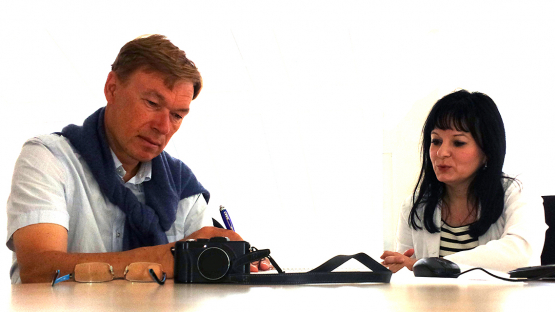Bosnia and Herzegovina experiences the devastating impact that cancer places on its population. According to the WHO1 20% of deaths in Bosnia and Herzegovina can be attributed to cancer, a number that is above the global average. Close to 7,000 people die each year from cancer2; a trend that is expected to rise with an estimated 9,000 people succumbing to the disease annually by 2030. Higher incidence and mortality rates of cancer weigh heavily on both government and family. It is therefore vital that authorities establish and sustain comprehensive cancer control strategies.
In June 2015, the Ministries of Health in the country's two political entities, the Federation of Bosnia and Herzegovina and the Republika Srpska, requested the IAEA's Programme of Action Cancer Therapy (PACT) to conduct an integrated mission of PACT(imPACT review) to assess their current cancer control capacities and identify areas for improvement. While cancer treatment is widely available, some challenges need to be overcome in order to expand and strengthen the cancer care and control.
Challenges include a broader access to cancer diagnosis and treatment, especially for the rural communities, as well as to strengthen prevention and early detection measures. Both Ministries demonstrate the political will and commitment to expand cancer control services and look to the continued support and cooperation of IAEA and partners.
Dragan Bogdanić, the Minister of Health for the Republika Srpska, is looking forward to imPACT recommendations in order to advance sustainable cancer control. The Minister of Health for the Federation of Bosnia and Herzegovina, Dr Vjekoslav Mandić, greatly appreciated the imPACT review and is positive that the recommendations will help to bolster the Strategy for Prevention, Treatment and Control of Malignant Neoplasms 2012-2020.
The imPACT review team was made up of high-level international experts from the IAEA, the World Health Organization (WHO) and the International Agency for Research on Cancer (IARC). Areas of expertise cover the full spectrum of comprehensive cancer control, from cancer control planning, registration and surveillance, prevention, early detection, diagnosis and treatment, to palliative care.
In order to obtain a representative picture of Bosnia and Herzegovina's cancer control capacities, the experts visited health facilities in Sarajevo, Mostar and Banja Luka. They interviewed counterparts at public health institutes, university medical schools, cancer care institutions, registry and screening sites, and palliative care providers, such as the Clinical Hospital in Mostar and the University Hospital Clinical Center in Banja Luka who offer cancer treatment and palliative care services. The team also met civil society groups, for example the Sarajevo Canton Breast Cancer Patients' Association, which forms part of an active support network among cancer patients across Bosnia and Herzegovina.
The imPACT review was conducted in the framework of longstanding IAEA support to Bosnia and Herzegovina in the area of cancer control. In addition, the IAEA continues to provide support and training in radiation medicine as well as in radiation safety and protection in medical applications.
----------
1WORLD HEALTH ORGANIZATION, Noncommunicable Diseases (NCD) Country Profiles, 2014, accessible at: http://www.who.int/nmh/countries/bih_en.pdf?ua=1
2 GLOBOCAN 2012 data, http://globocan.iarc.fr accessed 5.8.15


